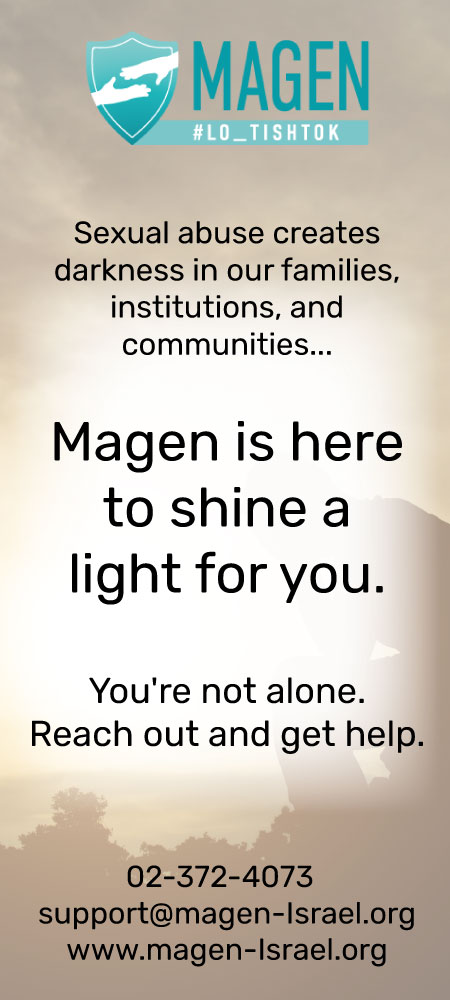
Remembering the Lonely on Purim
Written by Adara Yael Peskin-Shalem
As the author of a blog about saving money (Penniless Parenting), I have a reputation for being all about frugality. But the whole point of frugality isn’t necessarily to stop spending money entirely – it’s about spending less on the things that aren’t as important to you so that you have the money to pay for the things you value.
Purim is a good example of what I mean, but perhaps not in the way you might think. It has become the trend in some Jewish communities for people to spend hundreds, if not thousands of dollars to create significant numbers of fancy food baskets (mishloach manot) to send to their friends and acquaintances. In those communities there is a lot of pressure to ‘keep up with the Cohens’, which puts a large financial burden on people who either may not have the money or have other priorities.
But recently, probably in response to the aforementioned phenomenon, there is also a trend in many communities to really scale back on giving mishloach manot. We are reminded that the minimum halachically is to give two food items to one person, and many are choosing to do only that, instead focusing on giving money for gifts to the poor (matanot l’evyonim). Sometimes people give cards out to people in their community, wishing them a happy Purim, notifying them that a donation has been made in their honor. Those who choose this path believe they are doing the right thing, what the halacha actually asks of people, and shows that their priorities are correct. But in doing so they may not realize that they are causing harm to others, and perhaps missing one of the most important aspects of the mitzvot of Purim.
The Book of Esther (megilla) tells us that Mordechai instructed that we were to remember that our mourning was turned to celebration and happiness, by “observing [the fourteenth and fifteenth of Adar] as days of feasting and merrymaking, and as an occasion for sending gifts to one another and presents to the poor.”
From this, we learn that Purim is a day to be happy, and that there are four mitzvot of Purim – the festive meal, reading the megilla, giving mishloach manot, and giving matanot l’evyonim.
While many of us are taught about the four mitzvot of Purim, we often aren’t taught about the reasoning, or taamei hamitzvot, behind these commandments.
The first mitzva of Purim, reading the megilla at night and in the day, is probably the most straightforward. Remembering the miracle that happened, publicizing the miracle, and serving as a reminder in our present day that everything is orchestrated by God.
The second mitzva of Purim is to have a Purim feast. Since Haman wanted to destroy the Jews both physically and spiritually, we celebrate spiritually by reading the megilla, and celebrate physically by having the feast. Additionally, we remind ourselves of the sins of the Jews during the time of the Purim story, joining Achashverosh’s feast, for which they were punished with Haman’s decree, and of their repentance that caused them to be saved.
The next two mitzvot, mishloach manot and matanot l’evyonim, are to help enable people to have their own Purim feast, which is why the food used in mishloach manot needs to be ready to eat, and why the money for matanot l’evyonimneeds to be enough to cover a basic festive meal (enough to pay for a shawarma, for example, or so I was taught).
The purpose of the mitzva of mishloach manot, according to Rabbi Shlomo Alkabetz, is to increase friendship and promote unity. The Rambam says in Hilchot Megilla v’Chanuka that, while one delivery of two foods is enough, “v’kol hamarbe lishloach l’reim, meshubach”, whoever increases sending to friends, is to be praised.
Regarding the mitzva of matanot l’evyonim, the Rambam explains that it is better to give more to the poor than to make a bigger feast or send more food gifts to friends. This is the reason that many people have chosen to scale back on mishloach manot and focus on matanot l’evyonim.
However, the reason for the Rambam’s statement is often overlooked. He continues, “There is no greater or more glorious joy than gladdening the hearts of poor people, orphans, widows, and converts, since bringing joy to the hearts of the miserable is divine.”
While the Rambam specifically mentions these types of people, it is clear that the description of unfortunate and miserable extends far beyond just those aforementioned four.
Growing up, I didn’t have a lot of friends but was desperate for them, leaving me lonely and sad. While this was painful year round, it never was more accentuated than on Purim.
Living, and delivering mishloach manot, in the heart of the religious community, I would see people walking up and down the streets delivering mishloach manot, many of them kids I knew, and none of them with anything for me. Other than the one year that my wealthy classmate, whose parents were able to afford to provide for the whole class, included me, the only person I ever received mishloach manot from was my only friend. To add insult to injury, the day after Purim my classmates would bring their loot bags to school, excited to eat their mountain of treats, trading and sharing with
their friends. And I showed up with nothing.
Purim was supposed to be a happy time, a day of feasting and rejoicing, and yet all I wanted to do on Purim my entire childhood was cry, because I felt left out, rejected, alone, and neglected.
Fortunately, as an adult my social situation has changed, and I’m not at a loss for friends, thank God. But I can never forget how painful Purim was for me, year after year, and how depressing it can be for everyone who feels forgotten about on Purim.
The reason for mishloach manot is to increase friendship, and yet for so many, it is a stark reminder that they have no one. They stay at home, watching the people passing by outside their windows, delivering mishloach manot, and they cry. Or they put on a happy mask and pretend that their heart isn’t breaking when their empty table and countertops are a tangible reminder of their ‘special’ standing.

The purpose of the mitzva of mishloach manot, according to Rabbi Shlomo Alkabetz, is to increase friendship and promote unity.
Even though I am not well off, I will never “go small” for mishloach manot. My list of people to whom I deliver mishloach manot is quite long, and while I do deliver to close friends, my priority goes to people in my community who otherwise might have been forgotten about, or who might be alone and/or depressed on Purim. One year I dropped off mishloach manot at someone who had recently moved in, and she said that it was the first time she’d ever received mishloach manot, and it made her really emotional, and it made her Purim. It made mine as well, knowing that mishloach manot did exactly what it should – increasing friendship and bringing joy on Purim.
Yes, making many mishlochai manot can be pricey, but there are ways to keep down the costs. I nearly always make food from scratch, using seasonal produce or groceries I bought on sale. I’ve made rice and vegetable dishes, various vegetable salads and dips, cookies, popcorn balls, etc. I stick to two items only for my mishloach manot, and deliver them simply wrapped, in inexpensive disposable containers.
People try to make it a dichotomy, that you should be giving tzedaka to poor people, and that is more important than mishloach manot. But the reasoning behind the statement is being forgotten, and so are too many people who sit home alone just hoping that someone will
remember them. Perhaps we need to re-think the definitions of the two. Perhaps mishloach manot to the lonely and “unfortunate” in our community should be considered matanot l’evyonim. Giving money to charitable organizations is not the only form of tzedaka. Making sure that people feel remembered and valued might actually be one of the highest forms of tzedaka there is.
By all means, give charity on Purim. But don’t cut out the mishloach manot, as they are to increase friendship, and not to reinforce loneliness. Maybe it’s time to make a few new friends this year.
Related Articles
Related
Kumzitz and Laugh
In the darkest recesses of the human mind, in a place so heavy with shadow it seems impossible for a pinprick of light to shine through, a spark exists. That tiny ray seems like a direction, a point of promise, a simple moment of relief from the reality of the world...
Is it OK to Pray at a Grave?
“I am going to the grave of Rabbi Meir the miracle worker, to pray that I find my lost wedding ring.” “I am going to the Amuka, the grave of Yonatan Ben Uzi’el, to pray for a shidduch (marriage partner).” “I am going to visit the grave of Rabbi Gedalya Moshe of...
Making Our Celebrations Less Stressful and More Meaningful
Celebrations (smachot) highlight happy occasions and milestones such as Bar and Bat Mitzvahs and weddings. They are special times we look forward to with great anticipation for many years. Over the last few decades, however, both making a simcha (celebratory occasion)...

